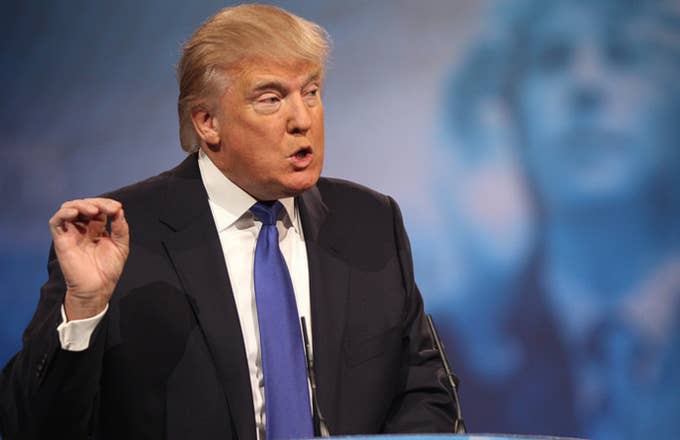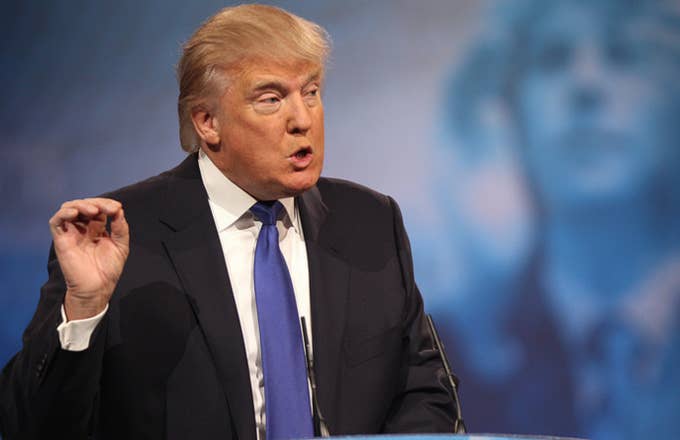
Trump questioned the constitutionality of funding sources for historically black colleges in a White House statement Friday, a move that revived criticism of his February meeting with HBCU presidents as nothing but a self-serving photo op:
In the statement announcing his signing of the Consolidated Appropriations Act, Trump specifically mentioned the Historically Black College and University Capital Financing Program Account in the final paragraph: "My Administration shall treat provisions that allocate benefits on the basis of race, ethnicity, and gender . . . in a manner consistent with the requirement to afford equal protection of the laws under the Due Process Clause of the Constitution's Fifth Amendment." The statement also named the Native American Housing Block Grants program.
Following the statement's release, many education leaders expressed skepticism regarding the Trump administration's commitment to a funding program established in 1992 that provides low-cost capital to historically black colleges for the "repair, renovation, and construction" of classrooms and related school facilities.
University of Pennsylvania professor Marybeth Gasman explained to the Washington Post Saturday that Trump likely sees such programs from a warped perspective. "[Trump] will see them as a handout," Gasman said. "He doesn't understand that he was given a leg up by his rich father. He doesn't see that other people need help from programs because of past discrimination and inequity."
A BuzzFeed Newssource "close to the administration" said Trump's statement was "tone-deaf" and had blindsided many within the White House and the Department of Education. "It totally blindsided the White House domestic policy staff and all of the key players on this issue, and it subsequently blindsided the HBCU community," a source said.
In follow-up comments, Trump claimed that his original statement "does not affect my unwavering support for HBCUs." In the new statement, shared Sunday, Trump cited the signing of an executive order in February that he says strengthened the capacity of HBCUs to "provide the highest-quality education." The executive order in question, however, has not been met with enthusiasm from education leaders.
Morehouse College President John Silvanus Wilson Jr. said many had "high hopes" ahead of the White House meetings in February. "There was much advance chatter about it being 'historic,' and there were many signals from key Trump administration officials that they would surprise HBCUs with favorable treatment," Wilson Jr. said in March. Instead of an executive order making good on Trump's vow to "do more for HBCUs than any other president has done before," however, Wilson Jr. said HBCUs were given a "symbolic" shift:
And beside the expectation of new funding, there was advance talk of changes like an aspirational goal of 5 to 10 percent for federal agency funding to HBCUs, a special HBCU innovation fund, large boosts in Pell Grant and Title III funding, and extra tax breaks for those in the private sector who contribute to HBCUs. But, instead of the long-awaited executive order containing or signaling any of those outcomes, the key change is a symbolic shift of the White House HBCU Initiative from the Department of Education to the White House. It is not possible to measure the impact of this gesture anytime soon, if ever.
As for the actual intentions behind Trump's inflammatory statement Friday questioning the constitutionality of HBCU funding methods, those remain unclear. However, Thurgood Marshall College Fund president Johnny Taylor toldBuzzFeed News that he had been given assurance that "no plan" to eliminate HBCU funding currently existed. Of course, this wouldn't be the first time a White House statement contained bafflingly tone-deaf language seemingly hell-bent on causing anger and confusion.

